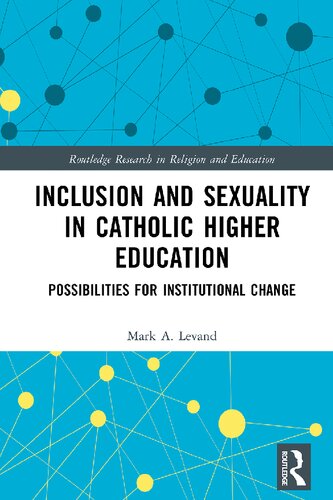

Most ebook files are in PDF format, so you can easily read them using various software such as Foxit Reader or directly on the Google Chrome browser.
Some ebook files are released by publishers in other formats such as .awz, .mobi, .epub, .fb2, etc. You may need to install specific software to read these formats on mobile/PC, such as Calibre.
Please read the tutorial at this link: https://ebookbell.com/faq
We offer FREE conversion to the popular formats you request; however, this may take some time. Therefore, right after payment, please email us, and we will try to provide the service as quickly as possible.
For some exceptional file formats or broken links (if any), please refrain from opening any disputes. Instead, email us first, and we will try to assist within a maximum of 6 hours.
EbookBell Team

4.7
36 reviewsDrawing on research conducted at 17 Catholic universities in the United States, making it the largest study of its kind, this volume explores effective practice in improving institutional policy relating to issues of sexuality.
The text calls attention to campus cultures of fear, shame, or denial around sexuality and highlights possible points of institutional resistance to changes in policy. Discussing topics such as sexual identity, sexuality education in the curriculum, Title IX, employee termination, and morality clauses, the book shows how staff and faculty are crucial in effecting change across Catholic campuses, providing valuable insight into the “unspoken rules” around sexuality within the shadow culture at Catholic institutions. Moreover, the text illustrates how institutions can maintain fidelity to Church teachings and even embrace notions of human dignity, solidarity, and the common good to achieve sexual inclusivity.
A unique study demonstrating how Catholic teaching can help support inclusive change around issues of sexuality and gender in higher education, it ultimately puts forward a practical framework for effecting change and improving student and staff support structures in Catholic institutions. It will thus appeal to researchers and academics working in the fields of Higher Education Management, Gender and Sexuality in Education, Religion, Gender and Sexuality, and the Sociology of Religion.